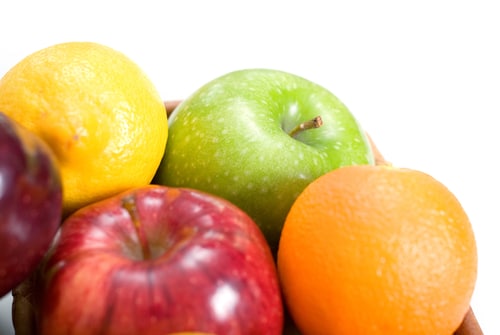 You eat a healthy diet, but are you really getting all of the nutritional benefits of the food you eat? Even if you’re eating a healthy diet rich in fruits and vegetables and balanced with good fats and lean sources of protein, you may not be getting the full benefits. Certain factors can interfere with the absorption of vitamins and minerals. This means you may be losing some of the nutrients you would normally get from food. Here are five reasons why you may not be getting the full benefits from the food you eat.
You eat a healthy diet, but are you really getting all of the nutritional benefits of the food you eat? Even if you’re eating a healthy diet rich in fruits and vegetables and balanced with good fats and lean sources of protein, you may not be getting the full benefits. Certain factors can interfere with the absorption of vitamins and minerals. This means you may be losing some of the nutrients you would normally get from food. Here are five reasons why you may not be getting the full benefits from the food you eat.
You’re Eating a Very-Low-Fat Diet
Some people go on a low-fat diet in hopes of losing weight or because they’ve heard that fat is bad for them. But you need a certain amount of fat in your diet to absorb fat-soluble vitamins. When you eat a diet that’s very low in fat, you don’t absorb fat-soluble vitamins (vitamins A, D, E, and K) as well. In fact, it’s a good idea to eat vegetables with a healthy source of fat to increase the absorption of these vitamins. By sautéing vegetables in olive oil and using an olive oil-based dressing on salads, you’ll absorb more of the fat-soluble nutrients you need.
You Drink Alcohol
Sipping a glass of wine may be heart-healthy, but too much alcohol causes inflammation of the lining of the intestines. This decreases the absorption of some vitamins and minerals, particularly fat-soluble ones. Plus, it reduces the release of digestive enzymes that help to break down food components so your body can absorb them. People who drink large amounts of alcohol are also at greater risk for deficiencies of calcium, magnesium, iron, and zinc. Enjoy the antioxidants benefits of a drinking glass of wine but only in moderation.
You Drink Lots of Tea
Coffee and tea are a good source of antioxidants, but they also contain plant compounds called tannins that bind to iron from plant sources, reducing its absorption. This is usually only a problem if you’re vegetarian since the tannins in tea don’t affect the absorption of the iron in meat. If you eat mostly a plant-based diet, avoid drinking tea with meals.
You Take Certain Medications
Some medications create conditions that reduce the absorption of vitamins and minerals. If you take acid-blocking medications, you may not absorb vitamin B12 as well. Low B12 levels can lead to anemia and neurological problems. Laxatives used to treat constipation reduce the absorption of some vitamins and minerals, and antibiotics destroy bacteria in the intestines that aid in vitamin and mineral absorption. Other medications that reduce vitamin or mineral absorption are oral contraceptives, diuretics, drugs used to treat seizures and some cholesterol-lowering medications.
You Take a Mineral Supplement
Taking high doses of one mineral can interfere with the absorption of others. Taking a zinc supplement interferes with absorption of copper and iron. When you take high doses of calcium, zinc, copper or magnesium, it reduces the absorption of the other three minerals. That’s why it’s not a good idea to take high doses of a single mineral unless you’re deficient and using it under a doctor’s care.
Other Factors That Reduce Nutrient Absorption
Some fiber-rich foods including seeds, nuts, bran, and whole grain foods contain phytic acid. Phytic acid binds to zinc, calcium, magnesium, and iron, reducing their absorption by the intestines. This usually isn’t a problem unless you eat a very high fiber diet. Nutrient absorption also decreases with age, likely due to an age-related decline in stomach acid. In addition, people who have certain medical conditions like celiac disease are at high risk for nutrient absorption deficiencies.
The Bottom Line?
Even if you’re eating a healthy diet, you may not be getting all of the benefits. Keep these five causes of decreased nutrient absorption in mind.
References:
National Institute on Alcohol Abuse and Alcoholism No. 22 PH 346 October 1993.
Office of Dietary Supplements. National Institutes of Health.
Related Articles By Cathe:
Why Whole Foods Are Better Than Supplements
Calcium Absorption: How Much Calcium Are You Actually Absorbing from the Food You Eat?

